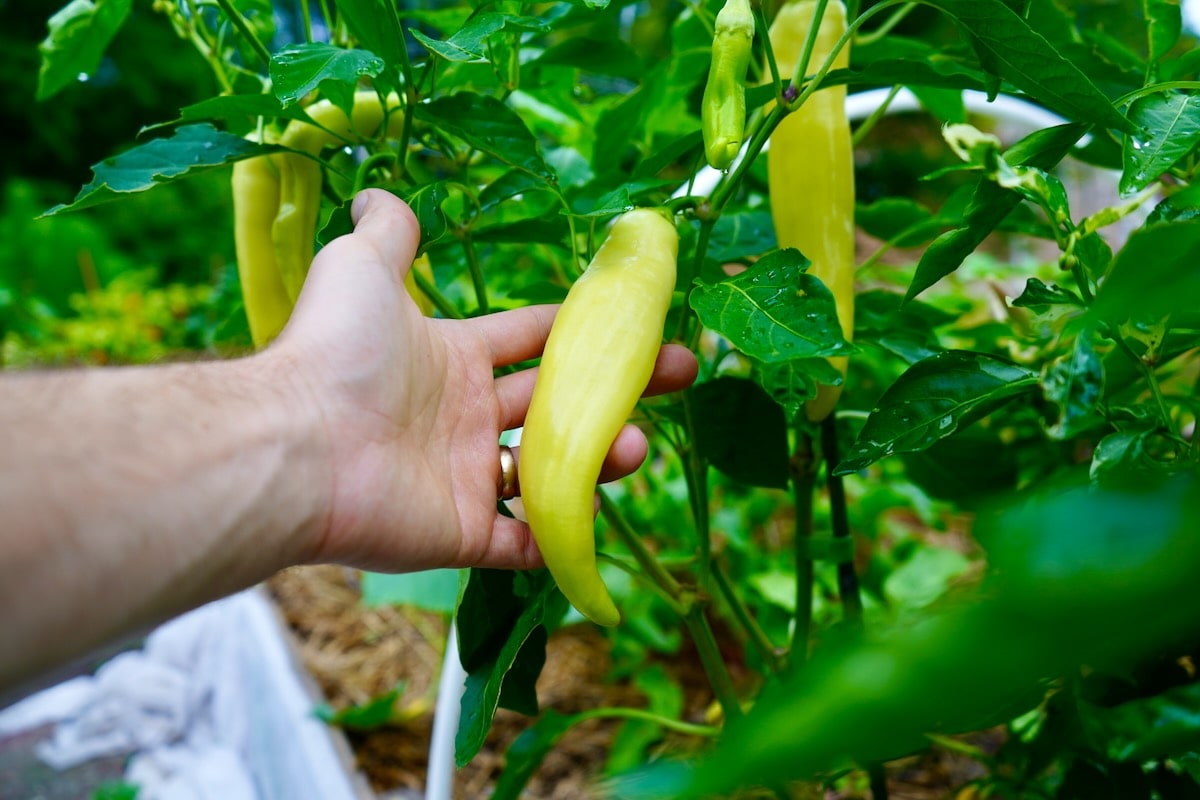Choosing the Best Fertilizers for Peppers: Expert Recommendations
Choosing the Best Fertilizers for Peppers: Expert Recommendations
Blog Article
Organic Vs. Synthetic Fertilizers: Which Is Best for Nurturing Healthy Pepper Plants?
In the realm of nurturing healthy and balanced pepper plants, the selection in between organic and synthetic fertilizers stands as a critical decision with significant implications. While both alternatives goal to supply vital nutrients to support plant development, the subtleties of their effect on the soil, plant wellness, and the setting stimulate a debate that mirrors throughout the gardening community. Recognizing the unique advantages and possible mistakes of each fertilizer kind is important for pepper growers looking for to optimize their returns while preserving an eco-conscious and lasting method.
Advantages of Organic Fertilizers
Organic plant foods use an environmentally-friendly and lasting method to beneficial pepper plants, supplying important nutrients without making use of synthetic chemicals. These all-natural fertilizers are stemmed from organic resources such as compost, manure, bone dish, and algae, promoting dirt health and biodiversity. Unlike artificial fertilizers, natural options release nutrients gradually, making sure a well balanced and stable supply for pepper plants to grow.
One significant advantage of natural fertilizers is their capability to boost soil framework and water retention. By enhancing soil wellness, natural fertilizers advertise beneficial microbial activity, which helps in nutrient uptake by pepper plants. In addition, organic fertilizers minimize the risk of chemical run-off, safeguarding water resources from air pollution and protecting the atmosphere.
In addition, organic fertilizers add to long-term soil fertility by advertising the development of useful soil microorganisms. These organisms aid damage down raw material, releasing nutrients in a type that is conveniently obtainable to pepper plants. best fertilizers for peppers. By cultivating a healthy and balanced soil ecological community, organic plant foods support sustainable pepper cultivation methods that benefit both plants and the atmosphere
Disadvantages of Artificial Plant Foods
Synthetic plant foods, in comparison to their organic equivalents, posture different drawbacks when used to nurture pepper plants, influencing both plant health and wellness and environmental sustainability. One significant disadvantage of synthetic plant foods is their tendency to seep nutrients from the soil quickly.
Moreover, the overuse of artificial fertilizers can add to water air pollution. Excess fertilizers not soaked up by plants can wash away right into water bodies, resulting in eutrophication, where algae blossoms deplete oxygen degrees in the water, harming water life. Synthetic plant foods are usually derived from non-renewable sources, such as fossil gas, contributing to carbon emissions and ecological degradation during their manufacturing.
Nutrient Absorption Comparison
Reliable nutrient absorption plays an important role in the general wellness and growth of pepper plants. When comparing natural and artificial plant foods in regards to nutrient absorption, organic plant foods have the benefit of providing a much more well balanced and slow-release resource of nutrients (best fertilizers for peppers). Organic fertilizers have a range of macro and trace elements that are not just helpful for the plants but likewise advertise healthy and balanced soil microbial task, which helps in nutrient uptake. On the other hand, synthetic plant foods typically give a fast release of nutrients, which can cause seeping and drainage, resulting in lower nutrient absorption prices by the plants.
Moreover, natural plant foods boost dirt framework and water retention capability, permitting pepper plants to accessibility nutrients extra efficiently. This better dirt top quality promotes origin growth, allowing much better nutrient absorption. Artificial plant foods, although at first increasing plant growth due to their high nutrient concentrations, might prevent lasting nutrient absorption by derogatory soil health in time.
Environmental Impact Factors To Consider

On the various other hand, artificial plant foods, although often more concentrated and right away available to plants, can have destructive results on the atmosphere otherwise applied properly (best fertilizers for peppers). Their production requires high power inputs, leading to greenhouse gas exhausts and adding to environment change. Additionally, the runoff of excess artificial fertilizers can pollute water sources, causing eutrophication and damaging water ecosystems.
Finest Plant Food Practices for Peppers
When fertilizing pepper plants, enhancing nutrient uptake and lessening ecological influence are essential considerations. To attain this, it is vital to comply with finest plant food techniques customized to the specific needs of pepper plants. One important method is to do a dirt examination prior to using any kind of plant foods. This examination can determine the pH level of the soil and identify any nutrient deficiencies, directing you in choosing the most suitable fertilizer formulation.
One more important technique is to feed pepper plants at Homepage the right time. Typically, peppers gain from obtaining plant food at planting and after that again when they begin to blossom. Over-fertilizing can result in nutrient inequalities and hurt the plants, so it is important have a peek at this site to follow recommended application rates.
Furthermore, picking a balanced fertilizer with an NPK proportion that fits pepper plants' requirements is fundamental. Organic fertilizers, such as compost or manure, can be excellent selections as they release nutrients slowly and boost soil framework gradually. Nonetheless, synthetic fertilizers can supply a quick nutrient boost when needed. Inevitably, combining artificial and natural plant foods judiciously can aid support healthy pepper plants while lessening environmental influence.
Final Thought

Organic fertilizers use a lasting and environmentally-friendly technique to beneficial pepper plants, providing necessary nutrients without the usage of synthetic chemicals. Unlike synthetic plant foods, natural options release nutrients gradually, making certain a well balanced and steady supply for pepper plants to flourish.
Artificial plant foods, in comparison to their organic counterparts, position numerous negative aspects when used to nourish pepper plants, affecting both plant index wellness and ecological sustainability. When contrasting synthetic and organic fertilizers in terms of nutrient absorption, organic fertilizers have the benefit of supplying an extra well balanced and slow-release resource of nutrients.Furthermore, organic fertilizers enhance soil structure and water retention ability, enabling pepper plants to gain access to nutrients a lot more effectively.
Report this page